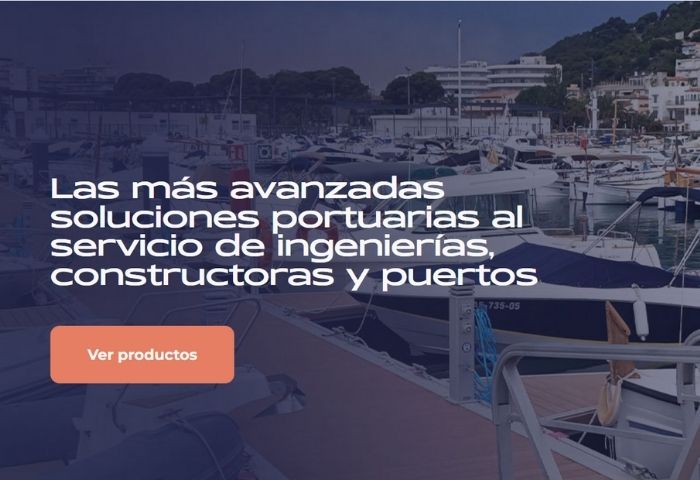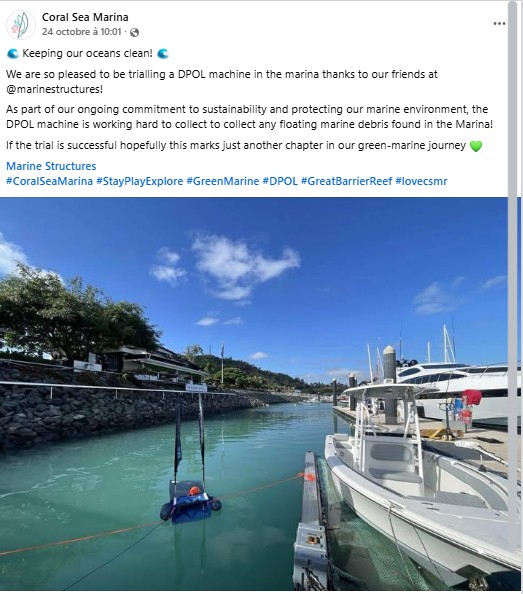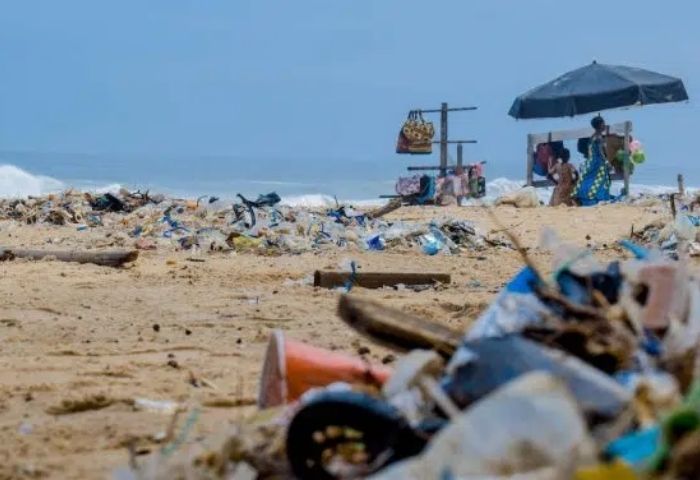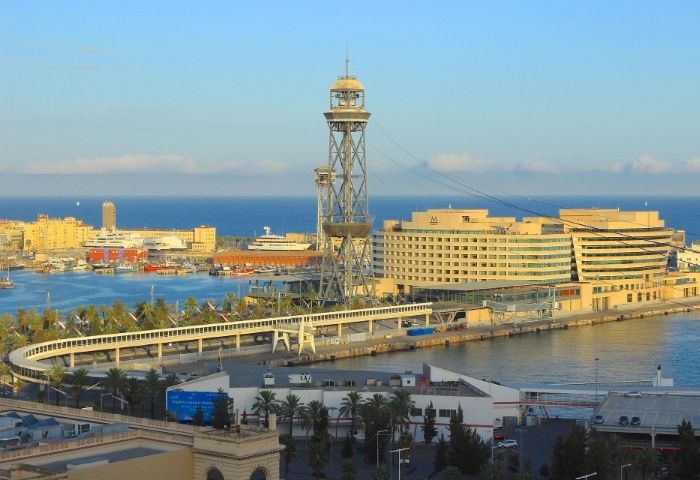In every city, even the smallest ones, street sweepers have become essential. Yet their cost is significant: between €100,000 and €170,000 to purchase, and up to €50,000 per year to operate, including a dedicated operator and maintenance. Still, their usefulness is never questioned—they embody the commitment of local authorities to a clean and welcoming public space.
And yet… Our ports, marinas, and coastal zones—just as exposed to pollution—remain the forgotten spaces in this cleanliness logic.
🌊 An invisible, toxic, and underestimated pollution
Every day, tons of plastics, hydrocarbons, and micro-waste float in port waters. Unlike oil spills, which have been reduced thanks to international cooperation, plastic pollution is ongoing, invisible, and dangerous. It carries toxic chemical substances and infiltrates the entire marine food chain.
And yet, very few ports are equipped to deal with it effectively.
🚤 A floating street sweeper: DPOL® technology in action
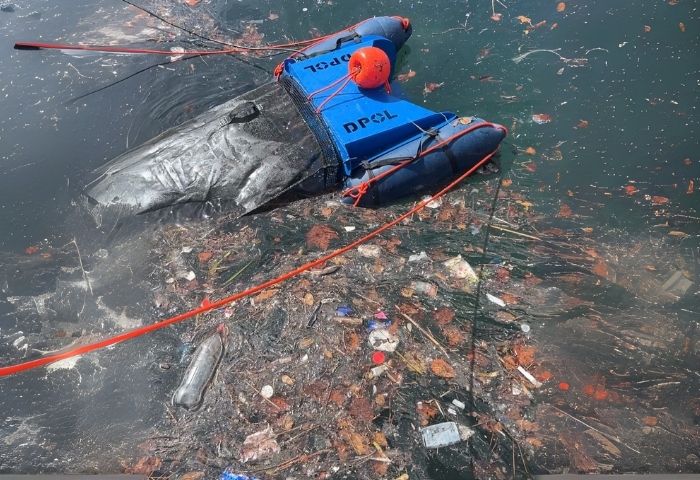
DPOL® solutions—whether it’s the DPOL® Classic, DPOL® HD, or DPOL® MAX—are designed to meet this challenge. They enable targeted, regular, and autonomous depollution of areas with high concentrations of floating waste.
A single DPOL® robot can be enough to clean a large surface, as floating waste naturally concentrates in specific zones, guided by wind and currents.
🧠 A matter of culture, not budget
The real barrier isn’t economic—it’s cultural and political. Marine pollution, though omnipresent, remains out of sight. It doesn’t block traffic, doesn’t smell, doesn’t obstruct access… but it kills silently.
It’s time to treat ports as full-fledged public spaces, deserving the same level of care as our streets and squares.
🌍 For a clean, modern, and committed coastline, adopt DPOL® technology. Discover our solutions and turn your port into a model of marine depollution.


